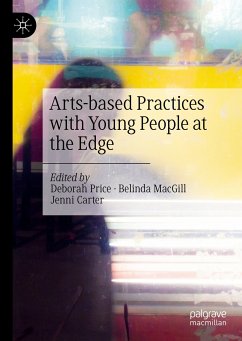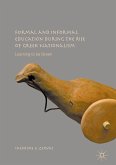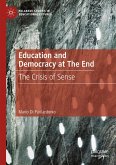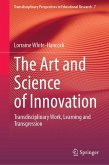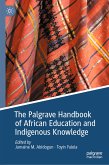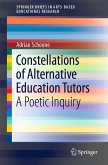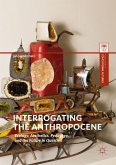This book explores how arts-based programs designed to reconnect young people with learning and work provide brief, sometimes profound, re-engagements and productive identity shifts. It aims to support youth pushed to the edge of formal education and entangled in structural social and cultural inequality. The researchers, artists, activists, and youth organizations developed process-oriented practices with young people, enacting new creative methodologies building on agentive possibilities to disrupt misrepresentation and invisibility. The book positions arts-based practices at the edge, examining complex systemic issues around youth disengagement and possibilities of collective creativity to navigate broken systems and inform futures. Enacting arts-based methodologies with young people at the edge through co-design shares navigation out of locked trajectories in collaboration with those who listen deeply as allies in their journey of re-presenting themselves to the world. The final section reflects on arts-based practices at the edge eliciting standpoints of young people at the edge.
Deborah Price is Research Degree Coordinator, Senior Lecturer and Centre for Research in Educational and Social Inclusion (CRESI) Executive member, University of South Australia: Education Futures and President Australian Curriculum Studies Association. Her research spans inclusive education, disability studies, curriculum, wellbeing and advocacy for capabilities and strengths approaches valuing young people's lived experiences.
Belinda MacGill is Senior Lecturer, artist and researcher at the University of South Australia: Education Futures with a focus on decolonisation through arts-based pedagogies and creative methodologies. Her primary research interests draw on the fields of environmental art education, postcolonial theory, visual methodologies, arts pedagogy and critical race theory.
Jenni Carter is Lecturer in Literacy and English Education at the University of South Australia: Education Futures. Her current research focuses on culturally responsive pedagogies stories, image and the arts and has significant experience in community-based education, professional development and creative pedagogies in school and community settings.
Dieser Download kann aus rechtlichen Gründen nur mit Rechnungsadresse in A, B, BG, CY, CZ, D, DK, EW, E, FIN, F, GR, HR, H, IRL, I, LT, L, LR, M, NL, PL, P, R, S, SLO, SK ausgeliefert werden.

